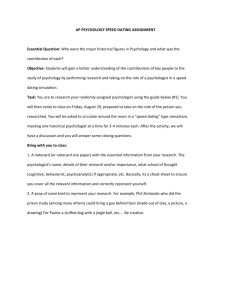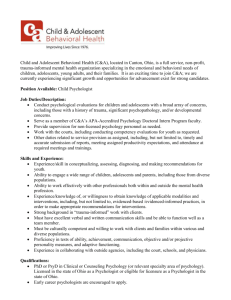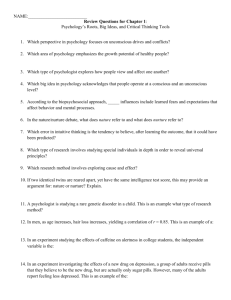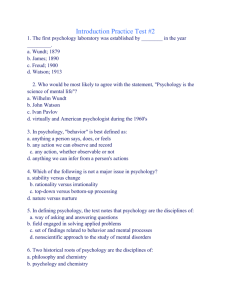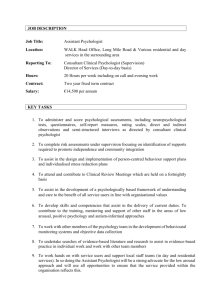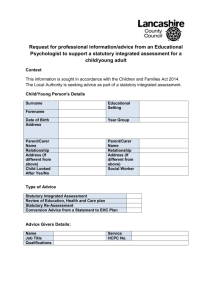Psychologist Speed Dating
advertisement
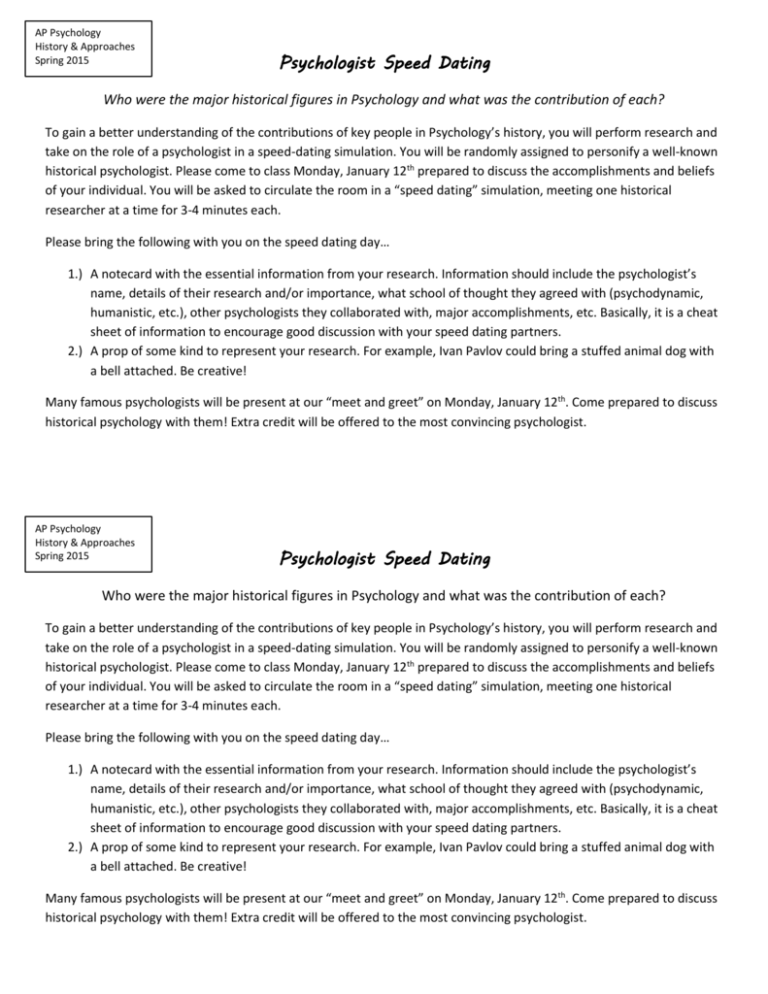
AP Psychology History & Approaches Spring 2015 Psychologist Speed Dating Who were the major historical figures in Psychology and what was the contribution of each? To gain a better understanding of the contributions of key people in Psychology’s history, you will perform research and take on the role of a psychologist in a speed-dating simulation. You will be randomly assigned to personify a well-known historical psychologist. Please come to class Monday, January 12th prepared to discuss the accomplishments and beliefs of your individual. You will be asked to circulate the room in a “speed dating” simulation, meeting one historical researcher at a time for 3-4 minutes each. Please bring the following with you on the speed dating day… 1.) A notecard with the essential information from your research. Information should include the psychologist’s name, details of their research and/or importance, what school of thought they agreed with (psychodynamic, humanistic, etc.), other psychologists they collaborated with, major accomplishments, etc. Basically, it is a cheat sheet of information to encourage good discussion with your speed dating partners. 2.) A prop of some kind to represent your research. For example, Ivan Pavlov could bring a stuffed animal dog with a bell attached. Be creative! Many famous psychologists will be present at our “meet and greet” on Monday, January 12th. Come prepared to discuss historical psychology with them! Extra credit will be offered to the most convincing psychologist. AP Psychology History & Approaches Spring 2015 Psychologist Speed Dating Who were the major historical figures in Psychology and what was the contribution of each? To gain a better understanding of the contributions of key people in Psychology’s history, you will perform research and take on the role of a psychologist in a speed-dating simulation. You will be randomly assigned to personify a well-known historical psychologist. Please come to class Monday, January 12th prepared to discuss the accomplishments and beliefs of your individual. You will be asked to circulate the room in a “speed dating” simulation, meeting one historical researcher at a time for 3-4 minutes each. Please bring the following with you on the speed dating day… 1.) A notecard with the essential information from your research. Information should include the psychologist’s name, details of their research and/or importance, what school of thought they agreed with (psychodynamic, humanistic, etc.), other psychologists they collaborated with, major accomplishments, etc. Basically, it is a cheat sheet of information to encourage good discussion with your speed dating partners. 2.) A prop of some kind to represent your research. For example, Ivan Pavlov could bring a stuffed animal dog with a bell attached. Be creative! Many famous psychologists will be present at our “meet and greet” on Monday, January 12th. Come prepared to discuss historical psychology with them! Extra credit will be offered to the most convincing psychologist. Mary Whiton Calkins John B. Watson Charles Darwin Wilhelm Wundt Dorthea Dix Edward Titchener Sigmund Freud Edward Thorndike G. Stanley Hall Erik Erikson William James Harry Harlow Ivan Pavlov Solomon Asch Jean Piaget Abraham Maslow Carl Rogers Mary Ainsworth B.F. Skinner Lawrence Kohlberg Margaret Floy Washburn Albert Bandura
